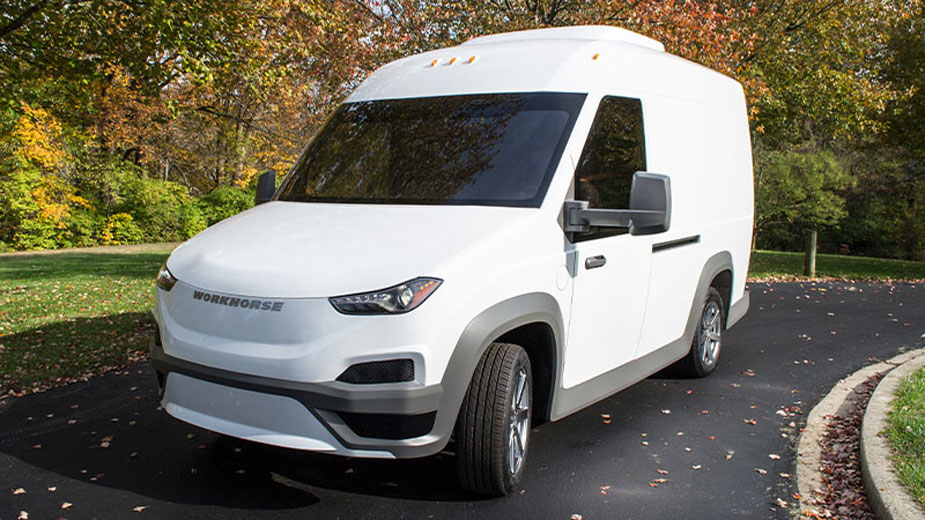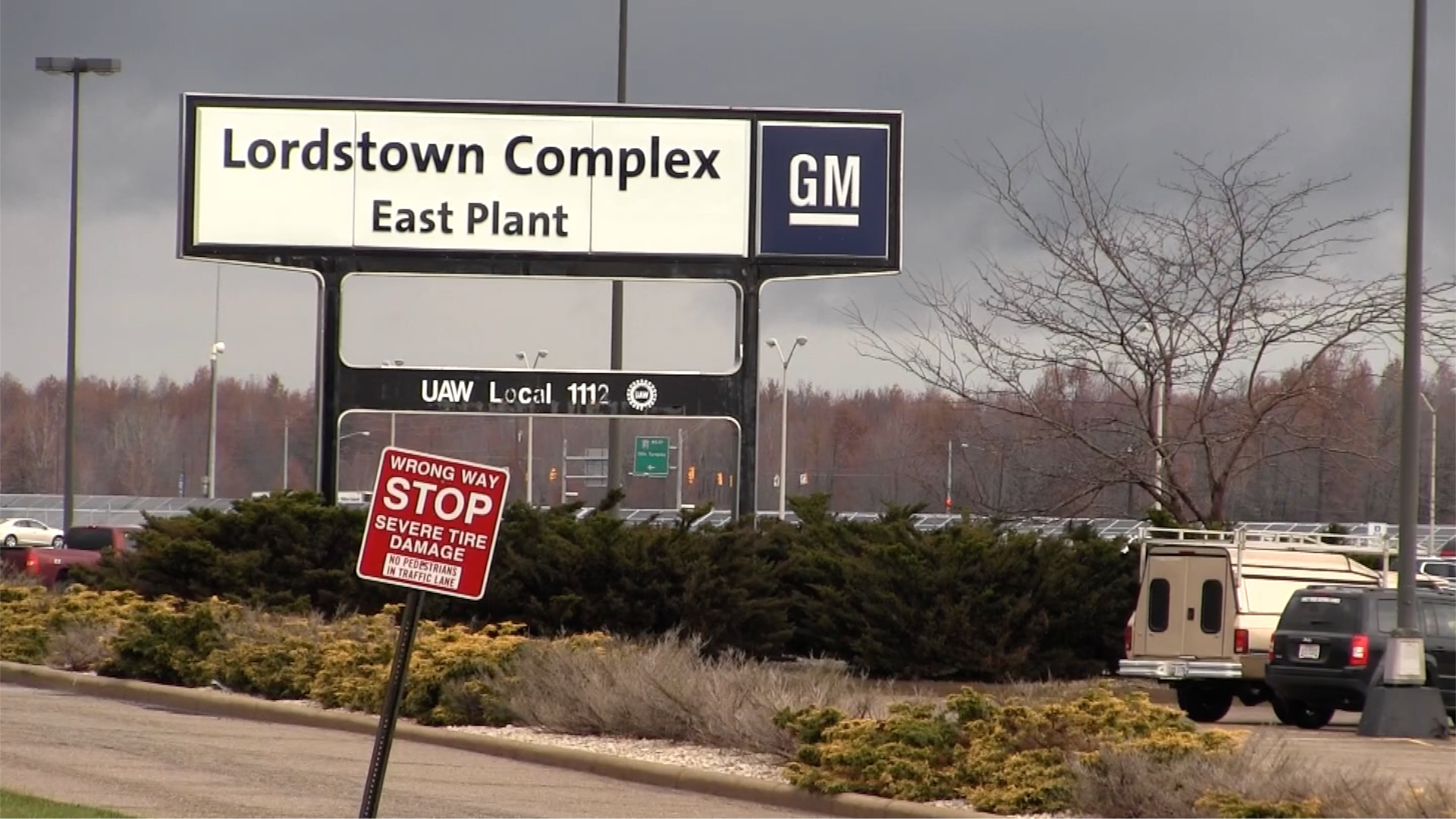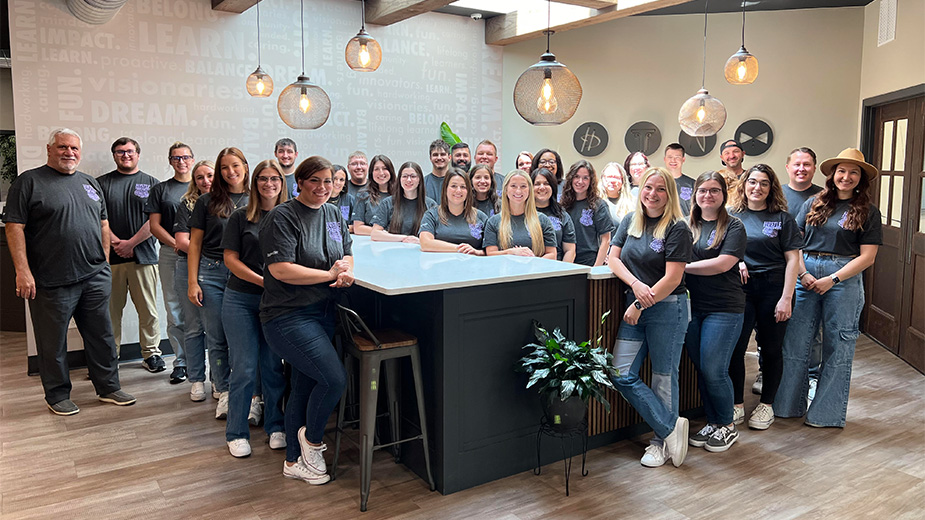GM in Talks to Sell Lordstown Plant to Electric Truck Maker
LORDSTOWN, Ohio — President Donald J. Trump announced this morning via Twitter that General Motors Co. plans to sell its idled manufacturing plant here to Workhorse Group Inc., a Cincinnati company that produces electric vehicles.
Tweeted the president, “GREAT NEWS FOR OHIO! Just spoke to Mary Barra, CEO of General Motors, who informed me that, subject to a UAW agreement etc., GM will be selling their beautiful Lordstown plant to Workhorse, where they plan to build electric trucks.”
The company designs and builds battery-electric vehicles including trucks and aircraft. According to the office of state Sen. Sean O’Brien, Workhorse plans to hire 400 workers who would be members of the United Auto Workers.
Trump also tweeted that GM plans to invest a total of $700 million at “[three] separate locations, creating another 450 jobs.” And the president thanked Barra, Ohio’s “GREAT governor” [Mike DeWine] and Sen. Rob Portman.
In a news release issued at 12:30 p.m. Wednesday, GM said it “is in discussions” with Workhorse Group, Inc. and an affiliated, newly formed entity that could bring significant production and electric vehicle assembly jobs to the Mahoning Valley.”
No additional details were provided.
Upon final agreement, the entity, led by Workhorse founder Steve Burns, would acquire the facility. Workhorse would hold a minority interest in the new entity, GM said.
“This potential agreement creates a positive outcome for all parties involved and will help solidify the leadership of Workhorse’s role in the EV community,” said Workhorse CEO Duane Hughes in the GM news release.
Burns added, “The first vehicle we would plan to build if we were to purchase the Lordstown Complex would be a commercial electric pickup, blending Workhorse’s technology with Lordstown’s manufacturing expertise.”
For its part, the UAW says not so fast.
“The UAW’s position is unequivocal,” said Terry Dittes, vice president and director of the UAW-GM department. “General Motors should assign a product to the Lordstown facility and continue operating it.”
Dittes noted that a federal lawsuit filed by the UAW over the closing of the Lordstown, Baltimore and Warren, Mich., plants is pending, “and the UAW will continue its effort to protect the contractual rights of its members at these locations. The parties regularly discuss product placement issues during national negotiations, which will begin in July of this year,” he said. “We will monitor this situation as it develops to determine what course of action will most benefit UAW-represented workers at GM.”
GM said it has been in discussions with the UAW since November about the future of the Lordstown plant.
“We remain committed to growing manufacturing jobs in the U.S., including in Ohio, and we see this development as a potential win-win for everyone,” said Barra in a statement. “Workhorse has innovative technologies that could help preserve Lordstown’s more than 50-year tradition of vehicle assembly work.”
Upon final agreement with all parties, work could begin immediately to prepare the facility for new production, GM said.
Sarah Boyarko, chief operating officer of the Youngstown/Warren Regional Chamber, said the proposed sale of the Lordstown plant presents “a potential opportunity” for the plant.
“Should this move forward, this is definitely a significant opportunity for our community and certainly what we hoped for with regard to the outcome for that location,” said Boyarko.
Lordstown Mayor Arno Hill said he was alerted this morning that plans were moving forward on something regarding the plant.
“I received a call that something was coming down,” he said. “I contacted GM this morning and the only thing I was told was that there was an ongoing discussion between the president and Mary Barra.”
Since the Trump tweet, media from all across the country have tried to contact him, Hill said. “The phone has been blowing up this morning.”
Hill said he’s not aware of specific details, but noted that the development is encouraging.
“It’s better than a plant sitting there for years at a time,” he said. “I still don’t know any of the specifics and how its going to help my village.”
U.S Sen. Rob Portman said he, too, spoke with Barra, who confirmed the possible sale of the Lordstown plant. In a statement, he also noted that such a transaction would be “subject to the approval of the UAW.”
On Tuesday, Workhorse Group Inc. reported first-quarter sales of $364,000, down from the $560,000 in the first quarter of 2018. The company cited lower vehicle sales. For the quarter, its net loss was $6.3 million, compared with a net loss of $6.4 million in the first quarter of 2018.
The company, founded in 2007, employs 98 full-time, according to The Cincinnati Enquirer, and has a contract with UPS to build 50 electric delivery trucks.

“We continued to make considerable progress in our transition from a development-oriented organization to a production-focused electric vehicle manufacturer,” said CEO Hughes in the earnings release. “Through our ongoing strategic relationship with Duke [Energy], we now have the ability to create an even more cost-competitive alternative, which also addresses one of the biggest issues preventing large scale electric fleet adoption: infrastructure needs.”
Hughes was named CEO earlier this year as Burns exited and borrowed “$35 million from a hedge fund and [absorbed] $8 million in warranty expense for defective battery packs in old electric vans,” reported the trade journal Trucks.
In a story published March 25, the trade journal quoted a Workhorse investor as saying unless the company secured at least $40 million from selling its Surefly helicopter model, it would be have just “one or two quarters of runway” to avoid bankruptcy .
In the first quarter earnings statement, Hughes said Workforce is “focused on our ‘Trucks First’ initiative, which has enabled us to make significant advances in all phases of the manufacturing process. Most notably, our renewed partnership with Prefix Corp. has us in solid positioning to begin producing fully-redesigned vehicles that now incorporate additional features that will streamline cost and increase production efficiency,” Hughes said. “We remain on schedule with respect to manufacturing and delivery of the new N-GEN, which should commence in the fourth quarter of this year.”
The company’s NGEN family of trucks would “support a variety of cargo sizes,” Rob Willison, chief operating office, said May 7 in a conference call with analysts. “These are all composite vehicles that are lighter with a flat floor; a mere 20 inches from the ground are more aerodynamic and have longer lives than their metal counterparts. It has better sight lines than current step vans and because of its construction is inherently safer for the driver.”
According to published reports, Workhorse has some 6,000 pre-orders for the electric pickup truck it plans to build.
Last month, Workhorse announced it had formed a strategic partnership with Prefix Corp. for the final design, development and production of its all-electric delivery van. Production is scheduled to begin in Workhorse’s Union City, Ind., plant in the third quarter with deliveries beginning soon after, the company said.
Prefix has been in business 40 years. Based in Michigan, the company creates prototype designs, mock-ups and full-scale vehicles for the automotive and aviation industries
More Coverage:
DeWine: ‘A Lot Has to Happen’ Before Lordstown Sale
Copyright 2024 The Business Journal, Youngstown, Ohio.


